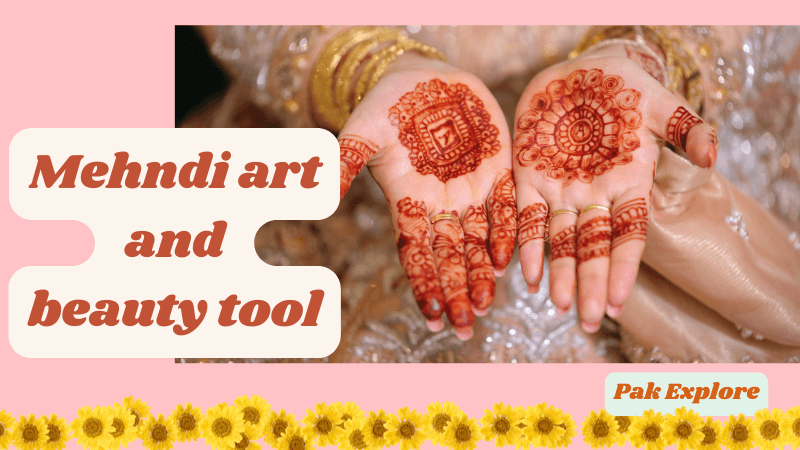Mehndi, also known as henna, has been a part of beauty and tradition since ancient times. It not only adds to the adornment of women but is also an important part of various cultural events and festivals. Let’s take a detailed look at the various aspects of henna.
1. Introduction to Mehndi
What is Mehndi?
Mehndi is a plant-derived powder that is mixed with water or other ingredients. Its color is mainly green which changes to dark orange or brown after some time after application on the skin.
History and background of Mehndi designs:
Mehndi has been used for thousands of years. In ancient Egypt, India and Pakistan it was used not only for fragrance and decoration but also as a symbol of good luck in weddings and religious ceremonies.
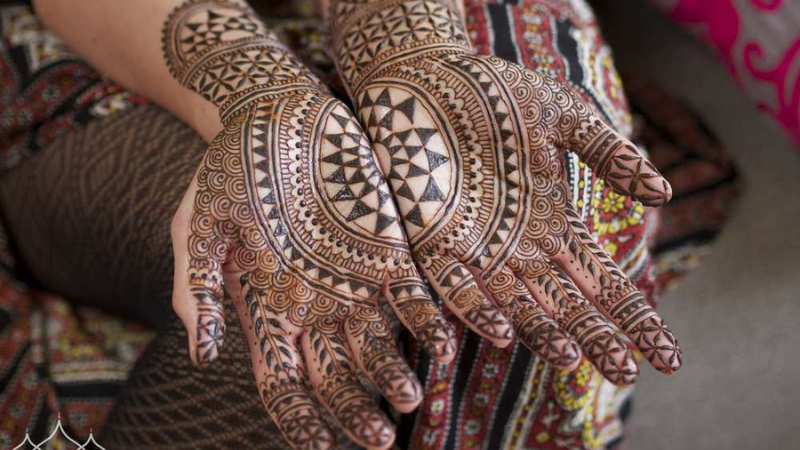
2. Different colors and types of Mehndi
Natural Mehndi
It is obtained from Mehndi plant and is without any chemicals. It is safe for the skin and is usually dark brown in color.
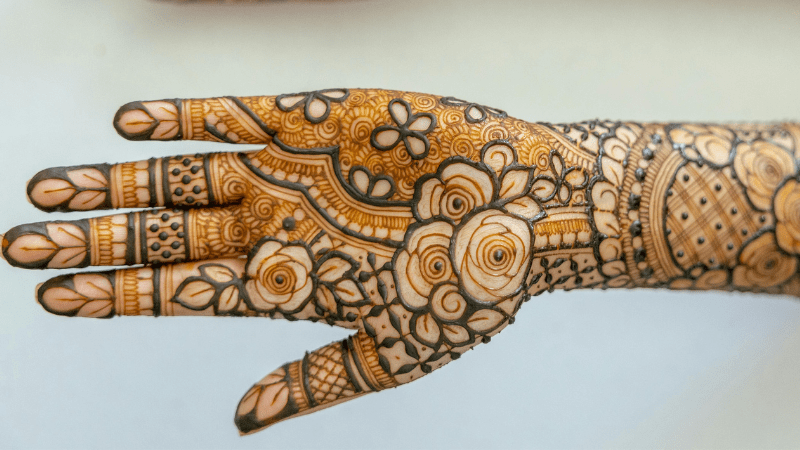
Chemical henna and its effects
Some It has chemicals added to darken the color, which makes the color darker, but can damage the skin.
Herbal Mehndi
It is specially formulated with natural ingredients that are beneficial to the skin and make it safe.
3. Uses of Mehndi
Uses for beauty
The most common use of Mehndi is for decoration, especially at weddings and festivals.
Medical benefits
It is also important in traditional medicine. It is used for cooling and treating skin problems.
Uses in fortune telling and traditions
In many cultures, It is considered a symbol of good luck, especially on wedding occasions.
4. Cultural Significance of Henna
Importance of Mehndi in Pakistan and India
In Pakistan and India, wedding ceremonies are considered incomplete without mehndi. A special henna ceremony is held before the wedding.
Uses of henna in other countries
It is also used in various traditional and religious ceremonies in countries in the Middle East, Africa and Southeast Asia.
5. Different Mehndi designs
Arabic Mehndi Designs
Arabic designs are based on large and open patterns that look attractive.
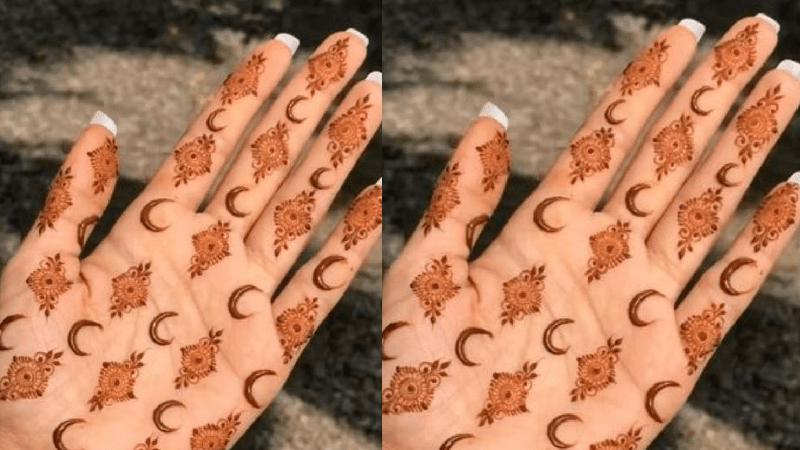
Indian Mehndi Designs
These designs are detailed and rich, and completely cover the hands and feet.
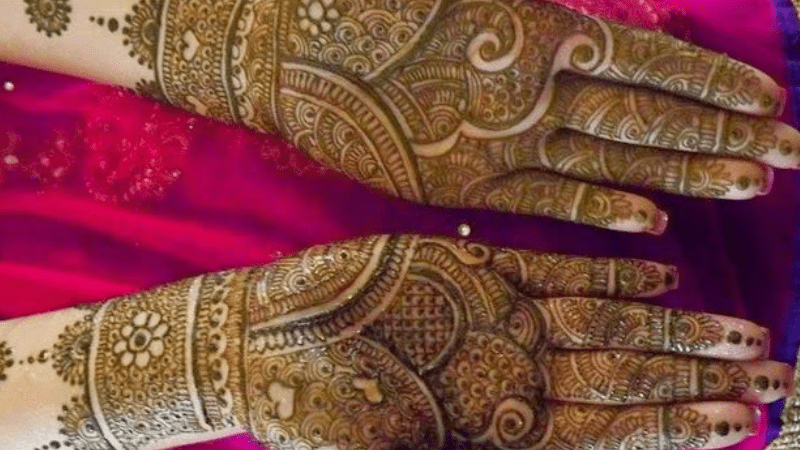
Gulf Mehndi Designs
The designs of the Gulf countries are unique and elegant, combining simplicity and elegance.
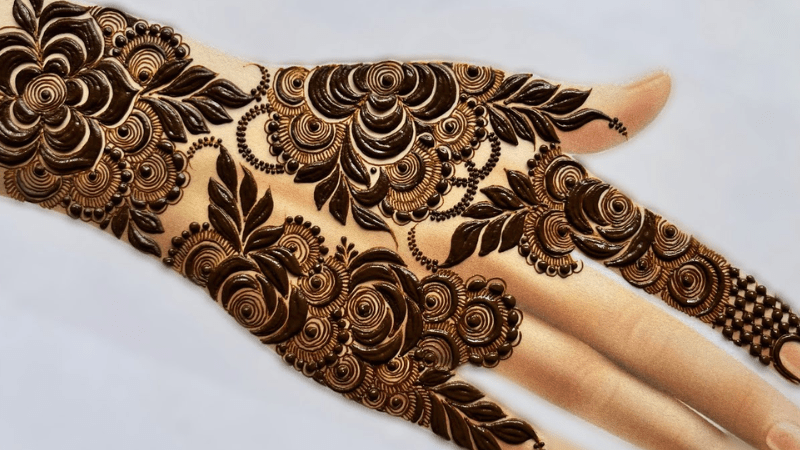
Pakistani Mehndi Designs
Pakistani mehndi designs consist of intricate and attractive designs, including flowers, vines, and traditional patterns. These designs are available in various types such as traditional, Arabic, and modern styles, which are beautifully decorated on the hands and feet. These designs are very popular on special occasions such as weddings and Eid’s.
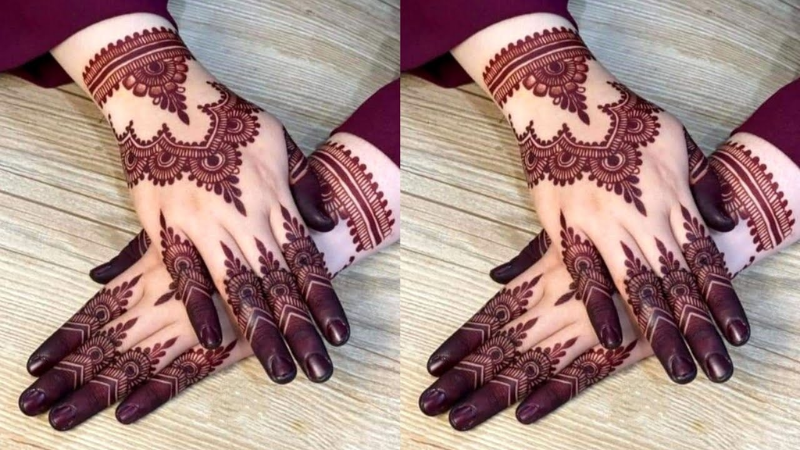
6. Henna application technique
Apply henna from cones
This is the easiest and most popular method in which the mehndi cones are operated according to the design.
Using brushes and stamps
Some people also apply henna with brushes and stamps, especially for simple designs.
Making henna at home
Preparing henna at home is safer and beneficial for the skin.
This is the easiest and most popular method in which the mehndi cones are operated according to the design.
Using brushes and stamps
Some people also apply henna with brushes and stamps, especially for simple designs.
Making henna at home
Preparing henna at home is safer and beneficial for the skin.
7. Role of henna in festivals and events
Wedding ceremonies
Applying henna to the bride is an important ritual in the wedding ceremony. Therefor bridal chose the unique It designs, so that she looks different to every were.
Mehndi in Eid
Women especially girls like to apply henna on the occasion of Eid.
Diwali and other occasions
It is considered a part of happiness and traditions on Diwali and other festivals too.
8. Latest trends related to he
7. Role of henna in festivals and events
Wedding ceremonies
Applying henna to the bride is an important ritual in the wedding ceremony. Therefor bridal chose the unique It designs, so that she looks different to every were.
Mehndi in Eid
Women especially girls like to apply henna on the occasion of Eid.
Diwali and other occasions
It is considered a part of happiness and traditions on Diwali and other festivals too.
8. Latest trends related to henna
Temporary henna tattoo
It is like a temporary tattoo and can be easily removed on the skin.
Glitter and Jewelery Mehndi
Glitter and jewelery It add embellishment and shine, which is a new fashion.
Multicolor Mehndi
Now different colors are also being used in mehndi designs.
9. Advantages and disadvantages of henna
Benefits for the skin
It cools the skin and provides softness naturally.
Effects of henna on sensitive skin
Some people have sensitive skin, and henna with chemicals can cause skin irritation or allergies.
10.Methods to keep henna long lasting
Ways to deepen the color of Mehndi
The color of henna can be deepened with the help of indigo, lemon or sugar.
Tips for maintaining the mehndi design
Avoiding water and using oil after mehndi can keep the color for longer.
Conclusion
It is a tradition that has been a part of culture for centuries. Its importance and beauty in Islamic and social events is indescribable. The future of its traditional and modern uses is bright and it will continue to be a source of beauty.
………………………………………………………………………………………………..
mehndi designs
